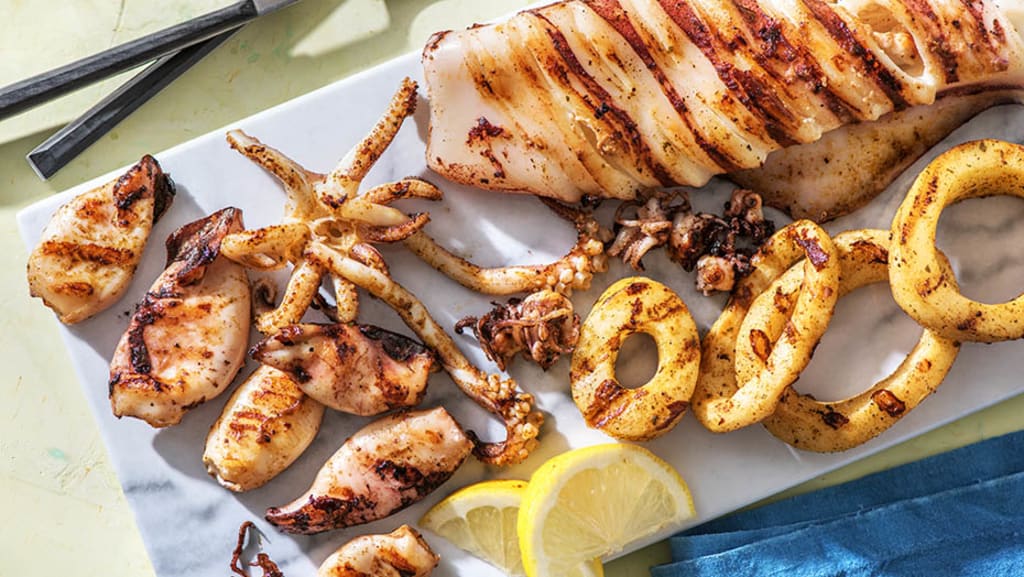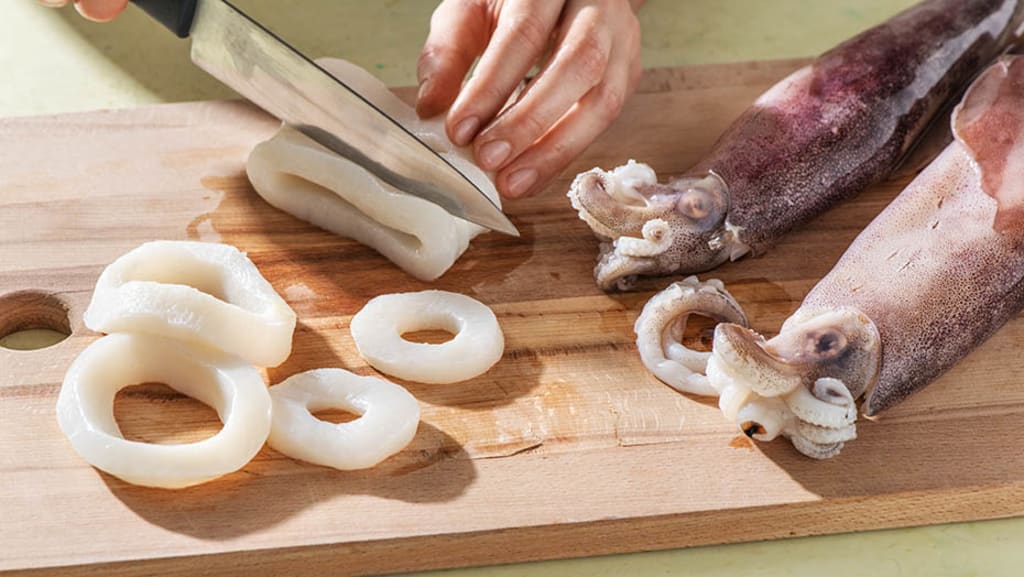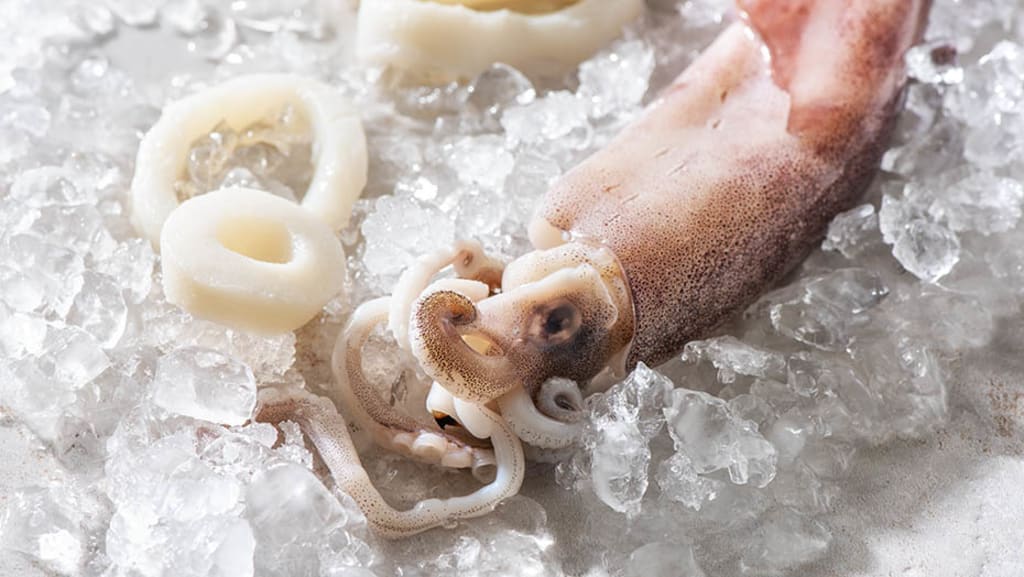SQUID
SQUID
Squid
Otherwise known as calamari, squid is a nutrient-rich, low-calorie seafood that’s prepared in a variety of unique ways by many cultures around the world.
CHICKEN NUTRITIONAL INFORMATION & HEALTH BENEFITS
Like many other types of seafood, squid is rich in omega-3 fatty acids, which are essential for heart health. Some people even take squid oil as a supplement, since this is a more sustainable option than cod liver oil. It's also an excellent source of several other nutrients, including selenium, zinc, Vitamin B2 and Vitamin B12. It's particularly useful as a source of copper, which promotes the absorption or iron and the formation of red blood cells: an 85g serving provides around 90% of your recommended daily intake (RDI) of copper.
Squid is a high-protein food that’s conveniently low in saturated fat. It’s also low-calorie, with just 78 calories per serving. When calamari is deep-fried, as it often is, the calories and cholesterol levels shoot up, but it’s easy to get around this: just grill, steam, stew or lightly saute it for a healthy meal that still packs a punch of flavor.

HOW TO STORE SQUID
As with other types of seafood, freshness makes all the difference here. Use your calamari as soon as possible after getting hold of it, ideally on the same day. It can be stored in the fridge for 1–2 days. Keep it in the coldest part of the fridge. It’s best if you can pack it in ice to keep it even colder.
Calamari freezes well when tightly wrapped in moisture-proof bags to avoid it drying out. It will taste great for up to 9 months, after which the flavour may deteriorate. Be sure to defrost all seafood thoroughly and safely in cold water, or in the fridge overnight.

SQUID TIPS, TRICKS & HACKS
If cleaning and preparing a whole, fresh squid seems daunting, don’t panic. You can always ask your fishmonger to do it for you. Many prefer to buy it already cut up for cooking. You will usually find the body sliced into rings. Tentacles may be chopped up or left whole, depending on their size.
How to know if your squid is fresh? It should appear shiny and smooth to the touch. Dry, wrinkled flesh with a strong smell is better thrown out.
When cooking calamari, either cook it quickly or give it plenty of time. Sear it over high heat in two minutes, or cook it long and slow for 30 minutes to an hour. That way, it will be nice and tender, not rubbery.
When buying it whole, you’ll need more than you think. Most recipes refer to the weight of cleaned, prepped calamari. More than half of the whole body weight will be discarded as you prepare to cook.

SQUID FACTS
Squids produce ink, which they release when threatened. Like octopus ink, this is perfectly edible. Use it to add flavour and colour to paella, pasta dishes, risotto and soup.
Squid come in every size. The tiniest ones are bite-sized, often eaten whole, while the largest edible variety typically grows to around a huge 4 feet 11 inches.
Squid can change colour to camouflage themselves from predators, and many species are even luminescent!
Delicious recipes for you to choose next week
Like what you see? Check out all of our upcoming recipes
VIEW OUR MENU